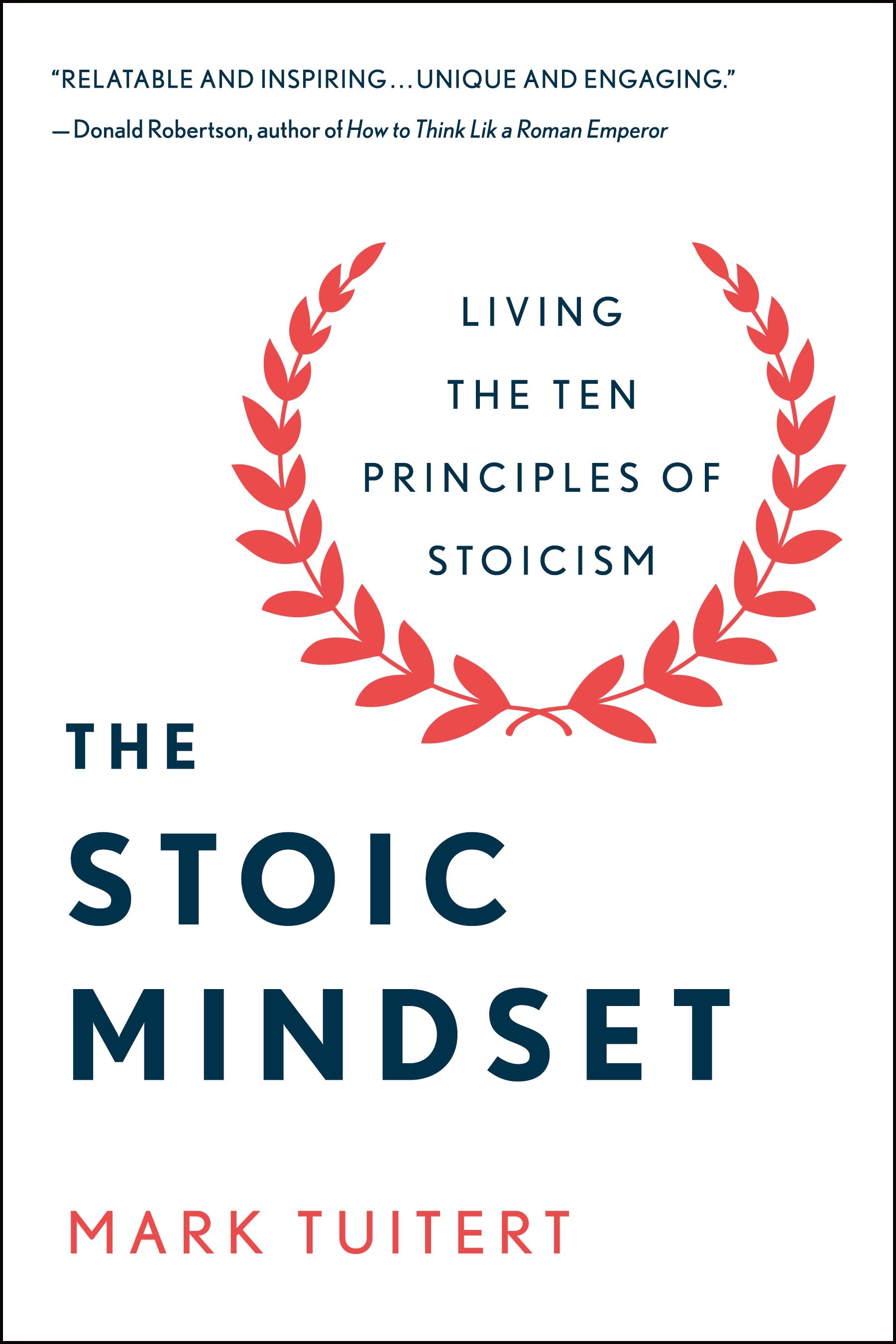10 Principles Of The ‘Stoic Mindset’ That Could Transform Your Life
Olympic gold medalist-turned-author Mark Tuitert reveals how the teachings of Stoic philosophers can lead to success.

When Dutch Olympian Mark Tuitert won the gold medal for the 1,500-meter speed skating in 2010, he wasn’t just thinking about winning, he was thinking about Epictetus and Seneca. For 20 years, Tuitert has used the principles and wisdom of great stoic philosophers to deal with high-pressure sports situations as well as challenges he faced as an entrepreneur and in his personal life.
Tuitert’s new book, The Stoic Mindset, details ten practical principles to master the stoic mindset—tools to help you tackle life’s challenges and reach your full potential. You’ll have to buyThe Stoic Mindset to really go deep, but Tuitert’s summary of his ten core principles offers an intriguing teaser on how to engage life like a stoic philosopher.

Principle 1: Use Setbacks as Signposts
Nobody likes setbacks, but if you want to raise the bar, you have to take risks. And there will inevitably come a time when things go against you. As bad as setbacks may feel in the moment, they are part of a rich and challenging life. Learn the lessons, and see setbacks as a signpost, not a stop sign.
Principle 2: Judge Less, Understand More
One of the basic tenets of the stoic mindset is to weigh your emotions. Examine your own judgment, then you cultivate more understanding of your own emotions and you can better empathize with others. If you can detach yourself from your negative judgment, you can oversee a situation for what it is and calmly decide how you want to respond.
Principle 3: Win by Not Focusing on Winning
Stoics focus their energy on making the right choices. They put aside frustrations about not achieving goals, whether it’s bad luck or coincidence. All energy goes into what you do have control over. And thinking this way actually increases the chances of achieving your intended results.
Principle 4: What’s Good for the Team is Good For You
One aspect of the stoic “good” is a commitment to treat everyone in the world well, just as you treat yourself and those around you, regardless of origin, status, race or personality. You are part of a greater whole, and if you do something that is not good for the community, it is not good for you either.
Principle 5: Accept Your Fate (And Love It)
The Stoic Mindset is not only about making the best of every situation, but actually learning to love it. We cannot deny reality. If you not only accept your fate but even love it, you can handle anything that life brings you.
Principle 6: Death Makes Life Epic
Instead of regarding death as tragic, you can also cherish it as a valuable realization. It ensures that we make valuable use of our time on earth. As such, death is an incentive for living in the now. Dying is not a bad thing–not living your life to the fullest may be even worse.
Principle 7: Happiness is a Side Effect
Pursuing happiness as a goal actually makes you unhappy, because you are always looking for the next win. It’s better to strive for eudaimonia, a state of being where you have peace of mind and aim for self-fulfillment. When you pursue the right thing, and work on yourself, you are most likely to find fulfillment within yourself independent of external outcomes.
Principle 8: A Map is Good. A Compass is Better
Think of it this way: it’s not about reaching port, it’s about sailing itself. That’s why it’s important to set direction. Research what you’re good at and have aptitude for, then you can do what suits you. The goals will find you if you determine your direction first.
Principle 9: Character is Your Most Important Project
Perhaps the most important question in stoicism is: ‘How do I cultivate good character?’ Good character is built on 4 key values: courage, temperance, justice and wisdom. These are character traits that anyone can train so that you live a good life for yourself as well as for others.
Principle 10: Actions Speak Louder Than Words
A simple but crucial question to ask yourself: what do you need to do for something? Form a picture of what it will take to accomplish something and ask yourself if you are willing to take those steps. Once you have done that, only one thing remains: action. You cannot say you want something and at the same time not take the action necessary to achieve what you want.
The Stoic Mindset drops April 9, but you can pre-order it now.
From the book THE STOIC MINDSET by Mark Tuitert Copyright (C) 2024 by Mark Tuitert. Reprinted by permission of St. Martin’s Essentials, an imprint of St Martin’s Publishing Group. Available on April 9, 2024 wherever books are sold.
